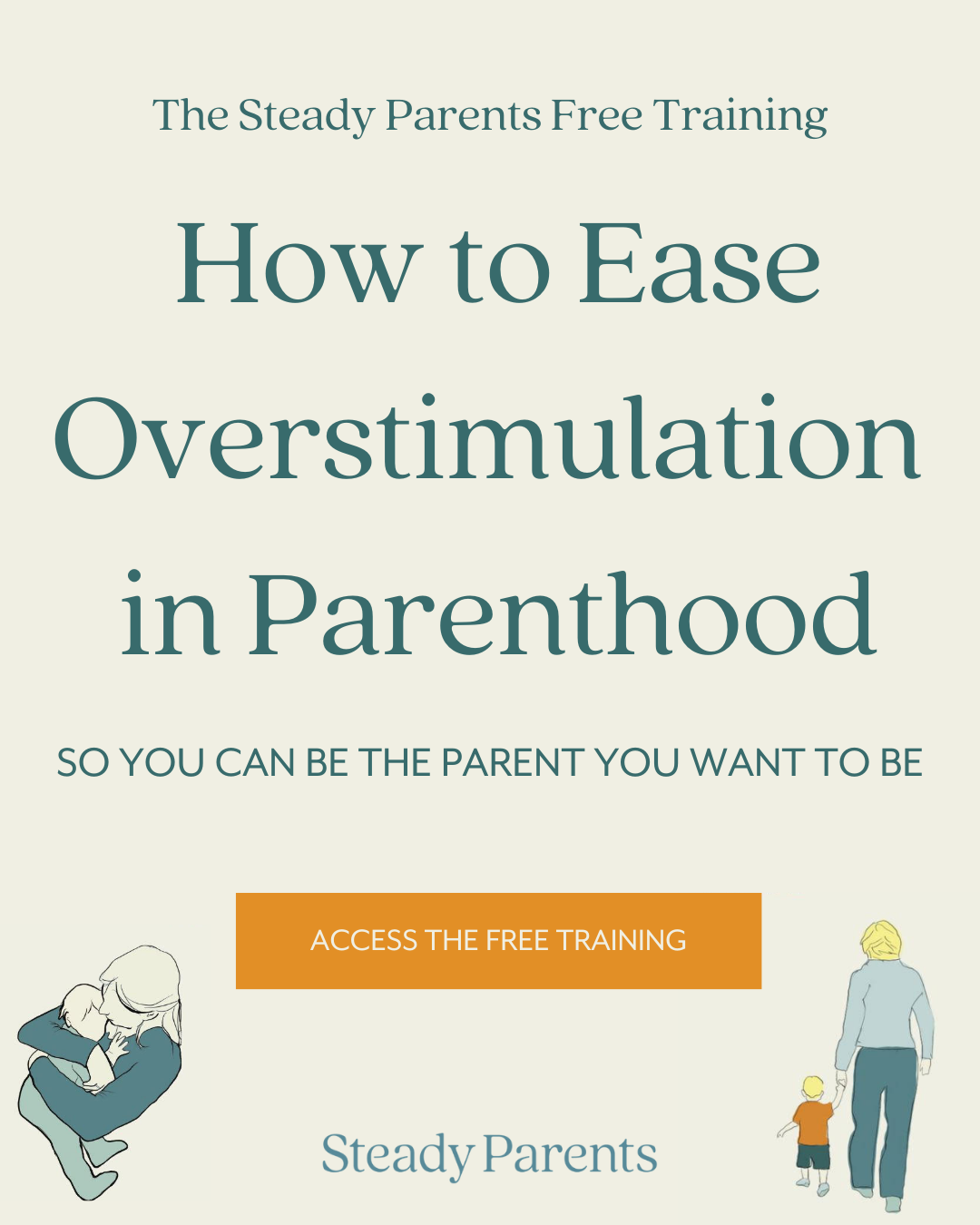10 Helpful Cooking Tips for Busy, Dysregulated Parents
It’s the holiday season which means you may be spending extra time in the kitchen preparing family feasts, special Christmas day brunches, or cookies for a neighborhood cookie exchange.
Maybe you want to bring your kids in on the holiday baking magic but you’re nervous their lack of actual culinary skills will take you from holiday cheer to “ah, get me out of here!”
In this post, I am going to share some of my tried and true cooking tips for busy dysregulated parents, so that if you want to make memories in the kitchen with your children, you have the tools to preserve the health of your nervous system.
And remember, if the idea of being in the kitchen with your kids for more than 5 minutes is enough to make your skin crawl, you can skip it! You’re still a great parent!
Sensory Processing Disorder and Eating
Some background- If you have a sensory processing disorder, or are simply a dysregulated parent, you may notice you have a heightened sensitivity to the way food tastes, smells, feels, or sounds. This goes for our children, too.
In fact, picky eating, food refusal, and food restriction are all behaviors that can be linked to disorders such as ADHD, autism, and sensory processing disorder. (Source: ADDitude).
Eating and preparing food requires all of our senses, from making the decision on what to eat and when, to preparing the food, all the way to sitting down and actually eating it.
The stress caused by overwhelm to our nervous system can throw off our appetite, hunger cues, and even the way food smells or tastes.
When you’re a dysregulated parent, you may choose to stick with foods that are familiar and comfortable to you, such as your favorite brand of mac and cheese. This helps you feel in control of your environment and allows you to attempt to calm your nervous system down.
But when you just want to create a special holiday baking memory with your littles, I’ve got some tips for you.
“Eating and preparing food requires all of our senses, from making the decision on what to eat and when, to preparing the food, all the way to sitting down and actually eating it. ”
How to Cook or Bake with Your Kids When You're a Busy, Dysregulated Parent
Cooking or baking with your kids can be a great way to spend quality time together, even if you're a busy and dysregulated parent. Here are some tips to make the experience enjoyable and manageable.
Choose Simple Recipes
Opt for recipes that are easy and require minimal ingredients. Simple recipes with fewer steps will be less overwhelming and time-consuming.
Even better if it is a recipe you know by heart or have made a dozen times. This repetition provides your brain with a sense of calm and familiarity because your body can practically go off of muscle memory to recreate the recognized dish.
Plan Ahead
Take a few minutes to plan the activity. Set out all the ingredients and equipment you'll need before you start. This can help streamline the process and make it more manageable.
Break it Down
Divide the cooking or baking process into smaller steps. This way, you can focus on one task at a time, making it easier for both you and your kids to stay engaged.
Set Realistic Expectations
Understand that things might not go perfectly, and that's okay. Be flexible and open to imperfections. The goal is to have fun and spend time together, not necessarily to create a flawless dish.
Choose Age-Appropriate Tasks
Assign tasks based on your child's age and abilities. Younger children can help with simple tasks like pouring ingredients or stirring, while older kids can take on more complex responsibilities, like measuring or using certain appliances.
That being said, appliances like a blender or food processor may make mixing and chopping easier and faster, so if your toddlers don’t mind the noise, have them help add everything into the mixer and press the buttons!
Use Convenience Items
Don't be afraid to use pre-packaged or pre-prepared ingredients to save time. The focus is on the experience and time spent together, not necessarily on creating everything from scratch.
You’re still a good parent if you use the box of brownie mix instead of measuring out the flour, cocoa powder, baking soda, etc. one by one. Let’s be honest, if your kid is anything like mine, they have about a ten minute attention span before they want to bolt out of the kitchen anyway.
Embrace the Mess
Accept that cooking or baking with kids can be messy. Have fun with it! You can always clean up together afterward and make it a game- who can clean up the fastest?
Consider using disposable tablecloths or placing newspaper on the table to make cleanup easier.
Try to remind yourself that the mess will only be there for a short period of time and is temporary.
Remember that the main goal is to spend quality time with your kids. Enjoy the process, share stories, and make it a positive experience for everyone involved.
Create a Routine
If possible, establish a routine for cooking or baking with your kids. This can help create a sense of predictability and make it easier to incorporate these activities into your schedule
I have a friend who is working on getting her four-year old to start helping to make his breakfast in the morning. Every morning, she pulls up a kitchen stool and he knows that’s his spot for the next five minutes or so.
He’ll decide if he wants to whisk the eggs or add the chocolate chips to the pancakes. So even though what they make is not always the same, the time of day and experience leading up to cooking is the same, making it more predictable for both mother and child.
Choose the Right Time
Pick a time when you're less stressed and more likely to enjoy the activity. Weekends or evenings might be better if your weekdays are particularly hectic.
Scheduling this activity ahead of time can also prepare your mind and nervous system for the disruption in your routine.
And you can use the tools found in Sensing Your Needs in Parenthood to ward off any overstimulating circumstances before you feel like you’re about to explode.
Delegate Responsibilities
If possible, involve other family members or friends in the process. This way, the workload is shared, and everyone can enjoy the experience. Does your partner hate baking?
Great, put them in charge of the mess clean-up while you snuggle on the couch with your littles and a cup of hot chocolate while your goodies bake.
Keep Cooking with Kids Simple
By keeping things simple, planning ahead, and focusing on the joy of spending time together, you can create positive memories while cooking or baking with your kids, even as a busy and dysregulated parent.
Remember, if you start to feel dysregulated in the moment, grab a crunchy or chewy snack for some regulating input. For more coping strategies, be sure to read Healing Your Nervous System: 10 Tips for Preventing Overstimulation.
Pin This for Later:









